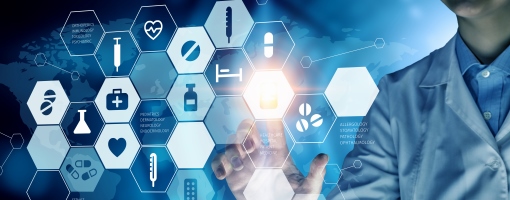The University of Glasgow has announced the construction of a health innovation hub.
In partnership with property developer Kadans Science Partner and with support from Scottish Enterprise, the hub will set the stage for a “thriving life sciences cluster” in the area, said the University.
The hub will be home to commercial businesses as well as the University of Glasgow-led Living Laboratory for Precision Medicine – a programme supported by UKRI Strength in Places Funding which is focused on translating research and healthcare innovation into a real-world clinical setting.
Due for completion in 2025, the hub will be located within the university’s Glasgow Riverside Innovation District (GRID) based in Govan.
“The University and Kadans Health Innovation Hub will be the cornerstone of our UKRI Strength in Places-funded Living Laboratory for Precision Medicine,” said Iain McInnes, University of Glasgow vice principal and head of the College of Medical, Veterinary & Life Sciences. “The world-class facilities created here will be key to the supportive and dynamic ecosystem that brings together academics, industry partners and the NHS to achieve this goal.”
He continued: “The Health Innovation Hub will be a catalyst for collaboration and innovation to better tackle global healthcare challenges, bringing real-world benefits to patients and the NHS.”
Latest News
-
MedTech data should represent entire population when training AI, says Department of Health director
-
ICO launches investigation into X’s Grok after reports of harmful sexualised imagery
-
OpenAI seeks chip alternatives as Nvidia's $100bn investment stalls over performance concerns
-
SpaceX acquires xAI in $1.25tn merger ahead of planned stock market flotation
-
Starling Bank turns to software sales to fuel US expansion
-
Snapchat bans 415,000 under-16 accounts in Australia
The future-ready CFO: Driving strategic growth and innovation
This National Technology News webinar sponsored by Sage will explore how CFOs can leverage their unique blend of financial acumen, technological savvy, and strategic mindset to foster cross-functional collaboration and shape overall company direction. Attendees will gain insights into breaking down operational silos, aligning goals across departments like IT, operations, HR, and marketing, and utilising technology to enable real-time data sharing and visibility.
The corporate roadmap to payment excellence: Keeping pace with emerging trends to maximise growth opportunities
In today's rapidly evolving finance and accounting landscape, one of the biggest challenges organisations face is attracting and retaining top talent. As automation and AI revolutionise the profession, finance teams require new skillsets centred on analysis, collaboration, and strategic thinking to drive sustainable competitive advantage.
© 2019 Perspective Publishing Privacy & Cookies




.jpg)




Recent Stories